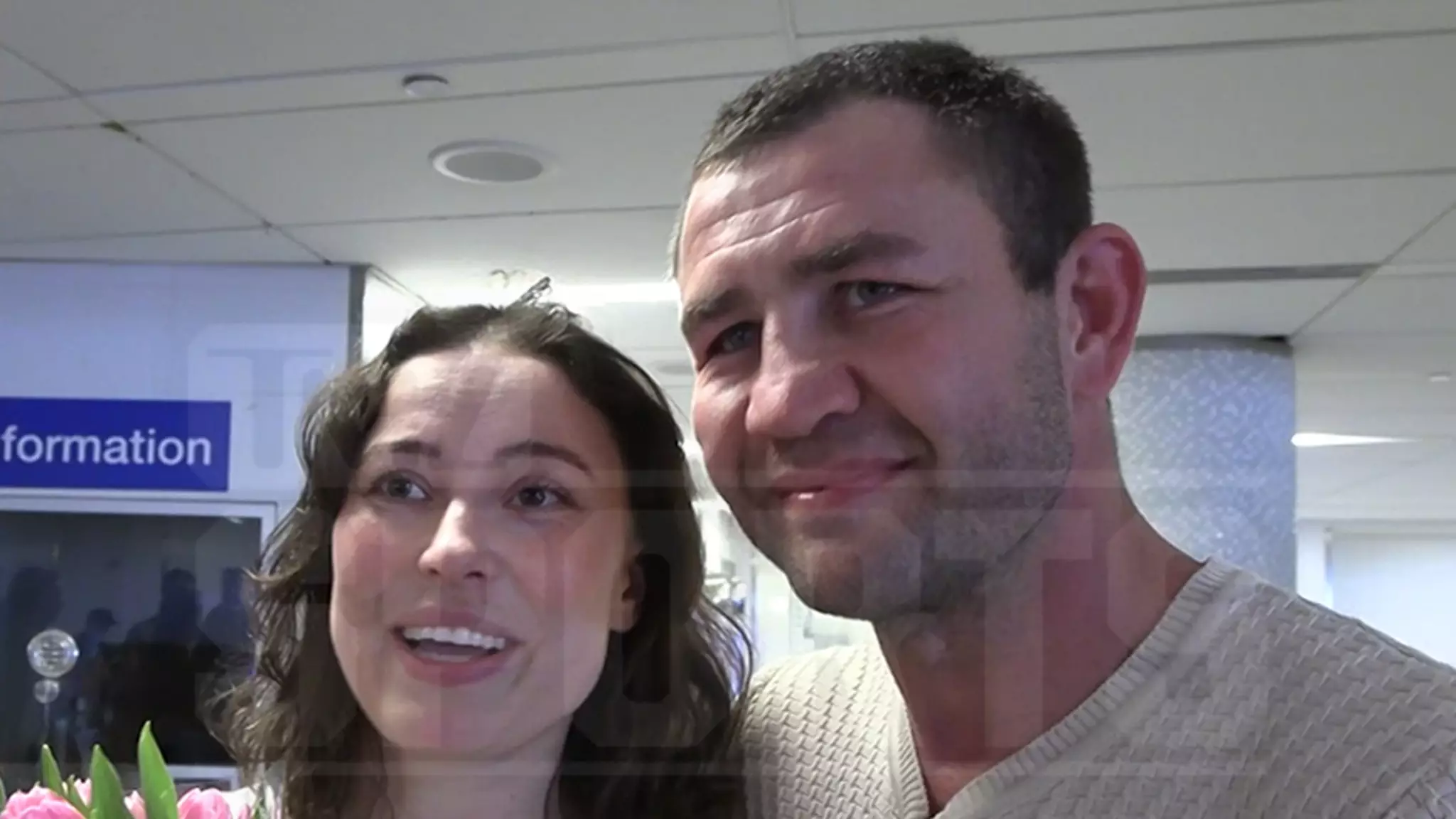The story of Ksenia Karelina, the Russian-American ballerina who endured a harrowing year in a Russian prison, is not merely about her difficult circumstances; it is a reflection of the complex interplay between politics, justice, and individual lives. Karelina’s journey from confinement to a warm welcome back in Los Angeles on a recent Friday night underscores how such narratives can become intertwined with national conversations about policy and administration. The emotional weight of her release resonates far beyond her personal triumph, carving out a significant space in the ongoing dialogue about international relations and human rights.
Political Commentary and Divisive Reaction
Upon her return, Karelina was greeted by family and friends, including her fiancé, professional boxer Chris van Heerden. His comments to the press were charged with political implications, particularly as he expressed gratitude toward former President Donald Trump while criticizing the Biden administration’s initial lack of response. This dichotomy serves as a potent reminder of how individual stories in the international arena can become politicized. Van Heerden’s assertion that Karelina’s release hinged on Trump’s intervention offers a controversial but gripping narrative, suggesting a divide that extends beyond mere personal sentiment.
The Nature of Human Rights Interventions
Karelina’s release followed a complex series of events, including a dramatic prisoner exchange that took place in Abu Dhabi. Arrested in January 2024 during a visit to her birthplace, she faced dire charges of treason for making a minor donation to Ukraine. Such a severe reaction highlights the alarming intersection of political dissent and governmental power in Russia—a domain that resonates with many activists around the world. As Karelina was sentenced to a staggering twelve years, her situation not only illuminated her personal struggle but also echoed the broader plight of individuals persecuted for their beliefs.
Expressions of Gratefulness and Relief
As Karelina stepped off the plane at LAX, her palpable joy and relief were infectious. This reunion, filled with loved ones who had anxiously awaited her return, represented a significant milestone in her life. “It feels like home, it’s amazing,” she expressed, finally enveloped in the warmth of familiarity. While she is still processing her traumatic experiences, her reaction reminds us of the resilience of the human spirit in the face of adversity. Though hesitant to discuss the trauma she underwent, it is clear that the ordeal has indelibly changed her.
The Future: A Path to Healing
Looking ahead, Karelina’s story raises questions about her journey toward healing and how she might utilize her platform as an artist in the wake of such an experience. Should she choose to speak out, she could shine a crucial light on issues of injustice and political persecution in a way that most can only imagine. Her story stands not just as a tale of survival but as a call to awareness for the continuing struggles of many around the globe who find themselves in similar circumstances. By reclaiming her narrative, Karelina can take powerful strides not just in her artistic career, but also as a public advocate for those still seeking their freedom.

